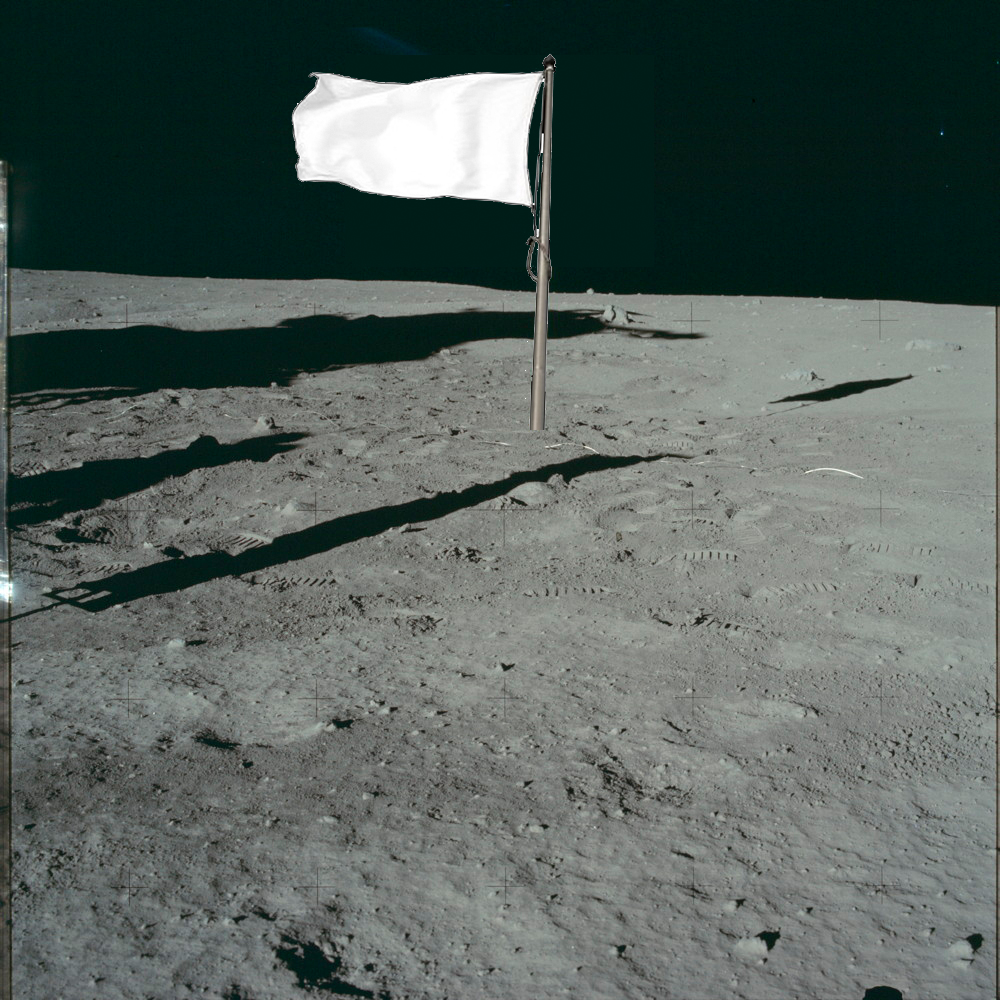hobbsyoyo
Deity
- Joined
- Jul 13, 2012
- Messages
- 26,575
Very low weight and relatively large rotor blades.How do you fly something on Mars with that little atmosphere?
Very low weight and relatively large rotor blades.How do you fly something on Mars with that little atmosphere?
The two years is because of the 15W transmitter can only transmit 1 to 2 kbp/s
Transmission errors will be corrected through various forward error correction schemes that halve the effective date rates or worse.




Hey hey, the moon is back.
It looks upside-down in the southern hemisphere?


I have read all US flag planted on the moon are currently bleached due to the strong UV radiation. Something like this:Hey hey, the moon is back.
What it looks like every night. (Northern Hemisphere)

It looks upside-down in the southern hemisphere?
https://www.forbes.com/sites/jillianscudder/2017/09/09/astroquizzical-upside-down-moon/#76d4ce271231
The U.S. flag might have fallen down after Apollo 11 left, but Apollo 12, 14, 15, 16, and 17 all had a pair of moonwalkers put up more American flags that are still standing tall today.
5 out of 6 ain't bad.
Poor Apollo 13 never got the chance.
Here's a tiny interactive map for the moon.
The Chinese landed inside the South Pole-Aitken basin, so spin the moon around to find it.
It's in the back at the bottom.
https://solarsystem.nasa.gov/moons/earths-moon/overview/
China finally sending back some close ups of the side of the moon we never get to see usually.
Specifically, the Von Karman Crater inside the South Pole-Aitken basin
I really like the big board at 0:43
Is that an animation of the relay satellite at 0:55?
Real pics at 1:32

(Reuters) - Elon Musk’s SpaceX will lay off about 10 percent of its more than 6,000 employees, the Los Angeles Times reported on Friday, citing an unnamed source.
The company did not respond to requests for comment outside regular business hours.
Reporting by Supriya Roy in Bengaluru, Editing by Rosalba O'Brien
https://www.bbc.com/news/world-europe-46849347BBC said:Spektr-R: Russia's only space telescope 'not responding'
Russia's only space radio telescope is no longer responding to commands from Earth, officials say.
Astro Space Centre chief Nikolai Kardashev said some of the Spektr-R satellite's communication systems had stopped working.
But it was still transmitting scientific data, RIA Novosti news agency reports.
The telescope has been operational way beyond its expected five-year lifespan, Russia's space agency Roskosmos says.
Specialists had repeatedly tried and failed to fix the lost connection, Mr Kardashev said.
Yuri Kovalev, head of research for the Spektr-R project, said the link went down on the morning of 11 January, but added that "there is still hope".
Spektr-R was launched into space in 2011.
A new Russian-German satellite, Spektr-RG, is scheduled to be launched this year.
